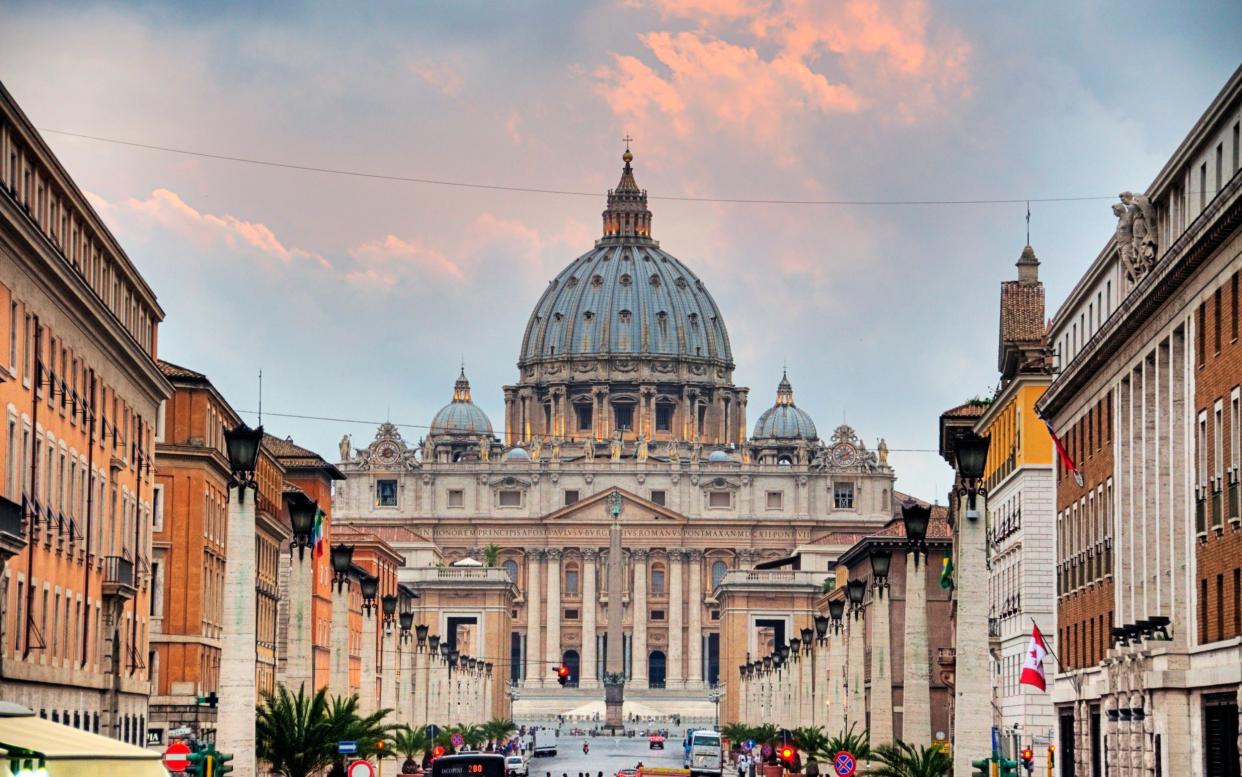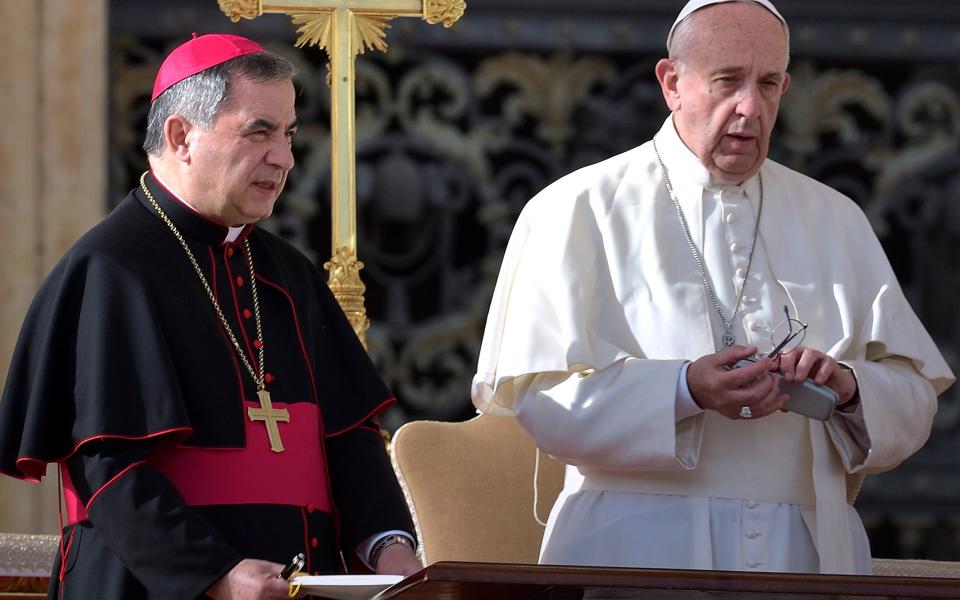English courts order Vatican to disclose sensitive emails in 'trial of the century'

The Vatican has been ordered by the English courts to reveal highly sensitive emails and texts between senior clerics despite claiming such disclosure would be a “grave sin.”
Lawyers for the Vatican sought to claim that the emails, WhatsApps, and encrypted messages sent between an archbishop and a cardinal were covered by “pontifical secret,” an ancient secrecy law that shields the inner workings of the Catholic Church.
However, in a landmark ruling in the High Court, a judge, Mr Justice Foxton, overruled the Vatican’s arguments and ordered that they should disclose the highly-sensitive correspondence.
The documentation is at the centre of what is known as the Vatican’s “trial of the century,” where British financier Raffaele Mincione is seeking to clear his name after being accused of defrauding the Catholic Church over a property deal.

The legal battle relates to a property deal where the Vatican invested £124m in a former Harrods warehouse in Chelsea that was earmarked for development into luxury apartments.
The Vatican claims Mr Mincione defrauded it by inflating the price when his companies sold the property in 2018. Prosecutors have charged Mr Mincione and 10 others with offenses including fraud, embezzlement, and abuse of office.
All 10, including Angelo Becciu, the former right-hand man to Pope Francis, deny wrongdoing.
However, the financier maintains he did not do anything wrong, and that the property valuation by independent experts was appropriate.
Mr Mincione claims that the Vatican has never disclosed evidence to show it lost money nor of his alleged wrongdoing.

Counter-claim
He has brought a civil action in the UK courts as a “counterblast” to the publicity and to protect his reputation after suffering “prejudice” as a result of the allegations.
As a result, the Court of Appeal has ruled that the Vatican should face trial in the English courts for the first time in its 2,000-year history over the allegations that it has leveled against Mr Mincione.
During the case, lawyers for the fund manager asked to see communications between Cardinal Pietro Parolin and the Argentinian Archbishop Edgar Pena Parra. The two high-ranking church officials oversaw the Vatican’s £124m investment in the fund managed by Mincione that owned the former Harrods warehouse in Chelsea.
Lawyers for the Catholic Church tried to argue that both Parolin and Pena Parra dealt with “high level” political matters, meaning their WhatsApp, Signal, Telegram, and meeting notes and documents should be considered state secrets, known in the church as pontifical secrets.
‘A grave sin’
In a witness statement, Carlos Fernando Diaz Paniagua, a Roman Catholic priest and lawyer, said: “Public officials of the Holy See and the Vatican City make a solemn oath not to reveal matters under the pontifical secret regardless of any grave or urgent considerations or the need to protect the common good.”
“The violation of the pontifical secret is deemed a grave sin,” added Paniagua.
However, Mr Mincione’s lawyers successfully challenged the Vatican’s attempts to withhold the communications. In an order, Mr Justice Foxton ordered the Vatican to make the disclosure and pay Mr Mincione’s costs.
Mr Mincione said: “I am pleased that the Vatican’s attempts to keep these communications under wraps have failed. Once again, its legal position has immediately dissolved on contact with the laws of man.
“I have always maintained I did absolutely nothing wrong in relation to this transaction, and the Vatican has not been able to submit any evidence to prove otherwise. I hope that in due course, the full facts of this bizarre case can be shown to the wider world, and the true situation will become clear.”
‘Violation of rights’
The case has been plagued with difficulties. When examining the evidence, an earlier Vatican tribunal agreed the defendants’ rights had been “completely violated” and ordered prosecutors to drop the charges, which they initially did, before re-charging them.
In the UK, Vatican investigators also tried to freeze bank accounts belonging to one of the alleged co-conspirators, which led a British judge to examine the evidence. In his ruling at Southwark Crown Court, Judge Tony Baumgartner found that, although not in bad faith, Vatican investigators’ “non-disclosures and misrepresentation” were “so appalling” he released the defendant’s funds.

 Yahoo News
Yahoo News 
